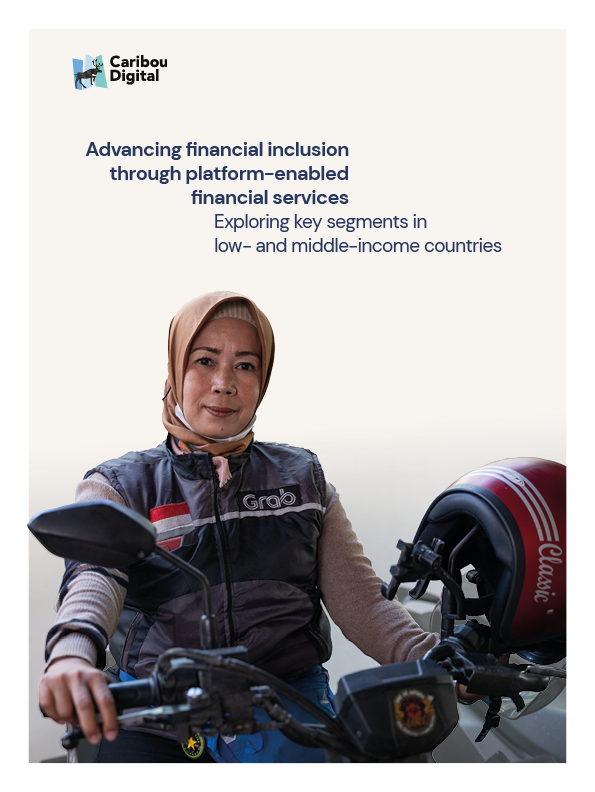Advancing financial inclusion through platform-enabled financial services
This report examines the impact of digital platforms on three traditional offline livelihoods in India, Indonesia, and Kenya: independent resellers, local nanostores, and ride-hailing and delivery services. It details how the platformization of marketplaces intersects with the dynamics of poverty and gender, outlining the current landscape and exploring avenues for creating more inclusive and empowering platform livelihoods.
Special attention is given to the promise of “platform-enabled financial services,” emphasizing the importance of data and user interface in scaling these services. It highlights how both embedded finance and lead-generation models can facilitate financial inclusion, benefiting low-income communities and women by lowering customer acquisition costs.
The potential of digital platforms to enhance low-income livelihoods and financial inclusion in these markets requires concerted efforts from policymakers, private sector entities, platform providers, and development actors.
This report underscores the need for improvements to digital public infrastructures (DPIs including digital identity systems, payment systems, and data-sharing frameworks that balance innovation with privacy). Additionally, it calls for platforms to intentionally design services that are accessible to women, low-income groups, and rural communities, overcoming barriers such as digital literacy and trust issues, to maximize the potential of digital platforms in driving socio-economic empowerment.
Authors: Marissa Dean, Mark Wensley, and Savita Bailur, Caribou Digital.
Supported by: Bill & Melinda Gates Foundation.



